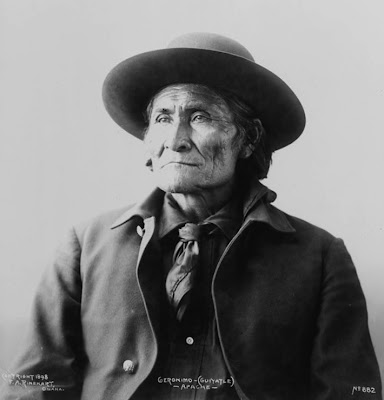Wednesday, December 30, 2009
Lady Jane's Castle
Mark Twain's mother, Jane Lampton Clemens (1803-1890), believed that her father's family had aristocratic roots and could claim kinship with the Earl of Durham. Supposedly, the Lamptons were a collateral branch of the earl's family, the Lambtons. Jane liked to say that Lambton Castle in County Durham was her ancestral home.
Her son dismissed such talk as fantasy and said there was no point in boasting about family ties to an old castle. "She might as well be proud of being descended from a mortgage," he joked.
In truth, the castle was constructed in the 1820s, when Jane was a young woman living in Kentucky and Tennessee. But it was built to look old, and presumably Jane concluded that it must be her family's ancient home when she saw an illustration like the one above in some book or periodical published in her son's youth. Years later, Twain learned that the earldom wasn't even created until 1833.
Shortly after his mother's death he used his novel The American Claimant to satirize the idea of Americans looking to profit from imagined aristocratic ties. The main character, a hopelessly impractical Washington lawyer, insists that he is the rightful Earl of Rossmore and gives his daughter, Sally, the title "Lady Gwendolen."
Perhaps the most famous thing in the book is the author's bold assertion at the beginning: "No weather will be found in this book."
Tuesday, December 29, 2009
They Still Jump Frogs, Don't They?
Mark Twain's story about miners betting on the leaps of local amphibians has inspired the folks at the annual fair in Calaveras County (in the foothills of California's Sierra Nevada Mountains) to hold a "Jumping Frog Jubilee." It takes place in May.
How far can the frogs fly? The record jump is 21 feet.
Justin Bookey made a funny documentary about the contest. That's Justin with one of the county frogs in the picture above.
Monday, December 28, 2009
Modest in Annapolis
On a visit to Annapolis, Maryland, in May 1907, Mark Twain was the guest of the state's governor, Edwin Warfield, whose large, florid face with white goatee made him look like a Kentucky colonel long before Harland Sanders laid claim to that image.
Twain liked Gov. Warfield, especially after the politician called him "one of the greatest men in the world" during one of the author's public appearances in Annapolis.
"Who am I to contradict the Governor of Maryland?" Twain asked, doing his best to seem modest. "Worm that I am, by what right should I traverse the declared opinion of that man of wisdom and judgment?"
Saturday, December 26, 2009
Neighbor Stowe
Facing Mark Twain's old mansion in Hartford is this graceful house that once was the home of Harriet Beecher Stowe. A small lawn separates the two places, both of which sit well back from busy Farmington Avenue.
It was here in July 1896 that Harriet Beecher Stowe died in her 85th year. In old age her mental abilities faded, and she was often seen wandering in the neighborhood. Sometimes, as Twain recalled in his autobiography, she appeared suddenly in other people's houses and surprised the residents with childlike games.
"The doors always stood open in pleasant weather," Twain wrote of his neighborhood. "Mrs. Stowe entered them at her own free will, and as she was always softly slippered and generally full of animal spirits, she was able to deal in surprises, and she liked to do it. She would slip up behind a person who was deep in dreams and musings and fetch a war-whoop that would jump that person out of his clothes. And she had other moods. Sometimes we would hear gentle music in the drawing-room and would find her there at the piano singing ancient and melancholy songs with infinitely touching effect."
Saturday, December 19, 2009
Mark Twain's Previously Unpublished Remarks on the Death of Geronimo and Teddy Roosevelt's African Safari
On Feb. 18, 1909, the New York Times reported that Geronimo had died the day before at Ft. Sill, in Lawton, Oklahoma, where he was officially a prisoner of the United States. The cause of death was given as pneumonia.
Eight days later Mark Twain wrote to his daughter Jean, who was a strong advocate for the civil rights of Native Americans: "That poor old Geronimo! I am glad his grand old patriot heart is at peace, no more to know wrong & insult at the hands of the Christian savage."
Elsewhere, in this same letter to Jean, Twain comments on President Theodore Roosevelt's plan to undertake an African safari soon after leaving office in March 1909. The author didn't think much of Teddy's policies or his personal values: "The wild creatures the President is going to Africa to hunt are very much his superiors in morals, conduct, disposition & respectability, I think."
Roosevelt's safari, which had the support of the Smithsonian Institution, captured or killed over 500 big-game animals like the one featured below in a photo from the Smithsonian's archives.
Wednesday, December 16, 2009
The Middle of Nowhere
When Arthur Rothstein took this photo in 1940, the once prosperous mining town of Virginia City, Nevada, was almost a ghost town. It's a bit more lively today and attracts lots of tourists, but the drive there from Carson City still feels like a trip to the middle of nowhere, with rugged hills and mountains stretching far into the distance on all sides.
Near the height of its glory, when Samuel L. Clemens was writing for the local Territorial Enterprise, the town was full of colorful--and often dangerous--characters, and life was never dull. But it was still in the middle of nowhere, and that's worth keeping in mind when recalling that this was the unlikely birthplace of the most famous literary career in American history. It was early in 1863 that the Virginia City Territorial Enterprise began publishing articles by Sam Clemens under his new pseudonym of Mark Twain.
Sunday, December 13, 2009
A River Runs Through It
Several people have told the story of the elderly Jorge Luis Borges visiting Hannibal in the early 1980s and asking to be taken to the river's edge so that he could dip his hand in Mark Twain's river.
"The Mississippi River is the source of Mark Twain's strength," the blind author is reported to have said. "I want to touch the river."
I can't vouch for the story, but it has the ring of truth to it. I do know that Borges was visiting the middle of America during the early Eighties because, to my surprise, I saw him one day in that period walking toward me on Kirkwood Avenue in Bloomington, Indiana.
With his large head, thinning silver hair, milky eyes, and elegant three-piece suit, he wasn't easy to miss on a quiet overcast morning. There was a younger woman walking with him, gently guiding him along the wide sidewalk. She didn't introduce herself, but as I later learned she was Maria Kodama, his constant companion in old age and eventually his wife. (I believe that the reason for their visit to Bloomington was to see their friend Indiana University professor Willis Barnstone.)
His face lit up when I said, "Hello, Mr. Borges." I shook his hand and told him the usual things people say at such a time--how much I admired his stories, and how delighted I was to meet him. He had not wearied of meeting admiring strangers like me, for he held on to my hand and thanked me for my praises as though hearing them for the first time.
When I said my name, he replied with gentlemanly grace, "How nice to meet you, Mr. Shell-den."
It's good now to recall his kind smile and to picture that soft hand I held in mine dipping itself into Mark Twain's timeless river.
Thursday, December 10, 2009
Over the Rainbow
One of Mark Twain's great friends in the last years of his life was the young Broadway star Billie Burke, whose warm manner and trilling voice he adored. She would use both qualities to advantage many years later when she played Glinda, the "Good Witch," in the MGM production of The Wizard of Oz.
In the cast of that film, she was the oldest major actor--at fifty-four, she was five years older than Frank Morgan (the Wizard) and eighteen years older than Margaret Hamilton (the "Wicked Witch"), both of whom look ancient compared with the radiant Billie. Though her voice and face are now familiar to millions, her fame in middle age as a character actor has obscured the fact that she was once a great leading lady. When Twain knew her, she was a rising star in her twenties with luxuriant red hair.
Twain called her "Billie Burke, the young, the gifted, the beautiful, the charming."
Sunday, December 6, 2009
Rhetorical Question of the Day
"If books are not good company, where will I find it?"--Mark Twain
In December 1908 Alvin Coburn took this color photograph of Twain at the author's house in Redding, Connecticut, using the new autochrome process. The picture was later used as the frontispiece for Archibald Henderson's 1911 short study of Twain's life and career.
In December 1908 Alvin Coburn took this color photograph of Twain at the author's house in Redding, Connecticut, using the new autochrome process. The picture was later used as the frontispiece for Archibald Henderson's 1911 short study of Twain's life and career.
"A Cure for Melancholy"
125 years ago this month the world had its first glimpse of the Great American Novel, Mark Twain's Adventures of Huckleberry Finn, which was published in England and Canada in December 1884. (The American edition didn't appear until February 1885.) As the early promotional material promised, the book was "a mine of humor" and "a cure for melancholy." Those original readers got the laughs they were expecting. But, of course, they also got a lot more--a powerful indictment of a society that had once defended so zealously the right to buy and sell human beings like Huck's new "comrade" Jim.
Wednesday, December 2, 2009
Up in Smoke
Mark Twain could smoke up to twenty cigars a day, and they were often stogies from the Marsh Wheeling Company of West Virginia. Founded in 1840, the company was one of the first to be associated with the cheap cigars called "stogies" (after the Conestoga wagons passing through Appalachia.)
Even in Twain's day Wheeling cigars were regarded as a strong smoke. In his autobiography Twain proudly recalls his butler telling him, "There is not a cigar in the house but those old Wheeling 'long nines.' Can't nobody smoke them but you. They kill at thirty yards."
Subscribe to:
Comments (Atom)


















